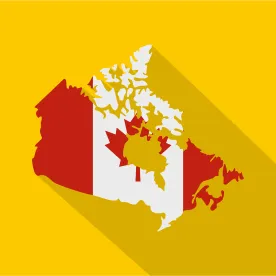Certain Canadian provinces have been especially hard hit by COVID-19 outbreaks. Most notably, Ontario and Quebec—two of Canada’s most populated provinces—have experienced the highest number of infection counts among the country’s provinces. While Ontario and Quebec have struggled to contain the spread of COVID-19, other provinces have had a different experience.
Throughout the pandemic, Atlantic Canada has been the “gold standard” with respect to its containment of COVID-19. Unfortunately, Newfoundland and Labrador recently had its worst outbreak yet, causing the provinces to implement significantly stronger COVID-19-related restrictions.
While Newfoundland and Labrador relapsed, the prairie province of Manitoba has continued to effectively reduce its overall COVID-19 case count. As a result, Manitoba recently issued an order loosening restrictions for businesses. However, in hopes of maintaining its positive containment progress, Manitoba has also released an order strictly regulating interprovincial travel.
An analysis of each province’s restrictions demonstrates the different realities to which provincial governments must respond.
Newfoundland and Labrador
On February 12, 2021, Prime Minister Justin Trudeau issued a statement on the COVID-19 outbreak in Newfoundland and Labrador:
Over the past week, the number of new cases of COVID-19 has escalated to unprecedented levels in Newfoundland and Labrador. The province is dealing with an ongoing outbreak due to the presumed COVID-19 variant, B117, which was first discovered in the United Kingdom and is more contagious than the original strain.
As a result of the outbreak, Newfoundland and Labrador has reverted to Alert Level 5, the most stringent lockdown in the province’s alert system. The province’s chief medical officer of health issued the new health order on February 12, 2021, the same day it took effect. Although the order states that the measures will be reviewed at least “once every 5 days,” there has been no indication as to how long the Alert Level 5 measures will remain in effect.
Here are some of the key closures:
-
gyms and fitness facilities, including yoga studios, swimming pools, and tennis and squash facilities;
-
dance studios;
-
cinemas;
-
performance spaces;
-
arenas;
-
personal service establishments, including spas, esthetic services, hair salons, body piercing salons, tattoo parlors, and tanning salons;
-
retail stores for all in-person service, “unless those stores provide services essential to the life, health or personal safety of individuals and animals” (e.g., food, pharmaceutical products, medicine, cleaning products, and hardware);
-
restaurants for in-person dining (although take-out, delivery, and drive-thru services are permissible);
-
all private health care clinics, except those of physicians and nurse practitioners.
Newfoundland and Labrador also requires individuals entering from outside of the province to self-isolate for 14 days after their arrival. Residents of the province or other locations within the Atlantic Provinces (Nova Scotia, New Brunswick, and Prince Edward Island), as well as essential workers and other individuals who meet the criteria approved by the chief medical officer of health are exempt from the self-isolation requirements.
This represents a very significant departure from Newfoundland and Labrador’s previous level of restrictions, in recognition of the seriousness of the outbreak in what was otherwise a fairly successful public health campaign to control the spread of COVID-19 within the province.
Manitoba
In contrast to Newfoundland and Labrador, Manitoba has released health orders easing COVID-19-related restrictions to businesses. These orders took effect at 12:01 a.m. on February 12, 2021, and are currently scheduled to last for three weeks.
The new orders allow the following businesses to reopen at a 25 percent capacity limit, subject to additional requirements:
-
retail stores with a maximum of 250 people;
-
restaurants and bars, with patron groups limited to those of the same household;
-
gyms, fitness centres, and yoga studios;
-
museums, art galleries, and libraries; and
-
personal and therapeutic service businesses, including those that provide hairdressing, barbering, manicures, pedicures, electrolysis, cosmetic application, tanning, tattooing, or massage services.
Manitoba has also passed an interprovincial travel order, imposing self-isolation rules for all individuals entering the province. According to the order, all travelers who enter Manitoba from another jurisdiction must immediately self-isolate for 14 days from the date of arrival to Manitoba. In addition, the order strongly advises travellers to “get two COVID-19 tests – one on the day of arrival, and another on the seventh day after arriving in Manitoba regardless of if they are displaying symptoms, and whether they are visiting Manitoba or are returning from out of the country.”
On February 11, 2021, Manitoba became the first Canadian province to break from the federal government’s national vaccine procurement process. Manitoba Premier Brian Pallister announced that the province entered into an agreement to purchase two million doses of a COVID-19 vaccine that is being produced by Providence Therapeutics in Calgary, Alberta. However, Health Canada has not approved this vaccine, and it may not be ready until next year. It is not known yet whether Manitoba’s decision to directly source potential COVID-19 vaccine doses will lead other provinces to do the same.
Takeaways for Employers
Canadian provinces and territories continue to respond to different challenges posed by the pandemic. Travellers to or within Canada currently have obligations under both federal and provincial orders. As vaccine distribution increases across Canada and the general population begins receiving doses, employers may want to review provincial vaccine distribution plans. If other provinces engage in vaccine procurement outside the national effort, employers across different provinces or territories may find that their workforces face very different prospects for obtaining a vaccine this year.






 />i
/>i

